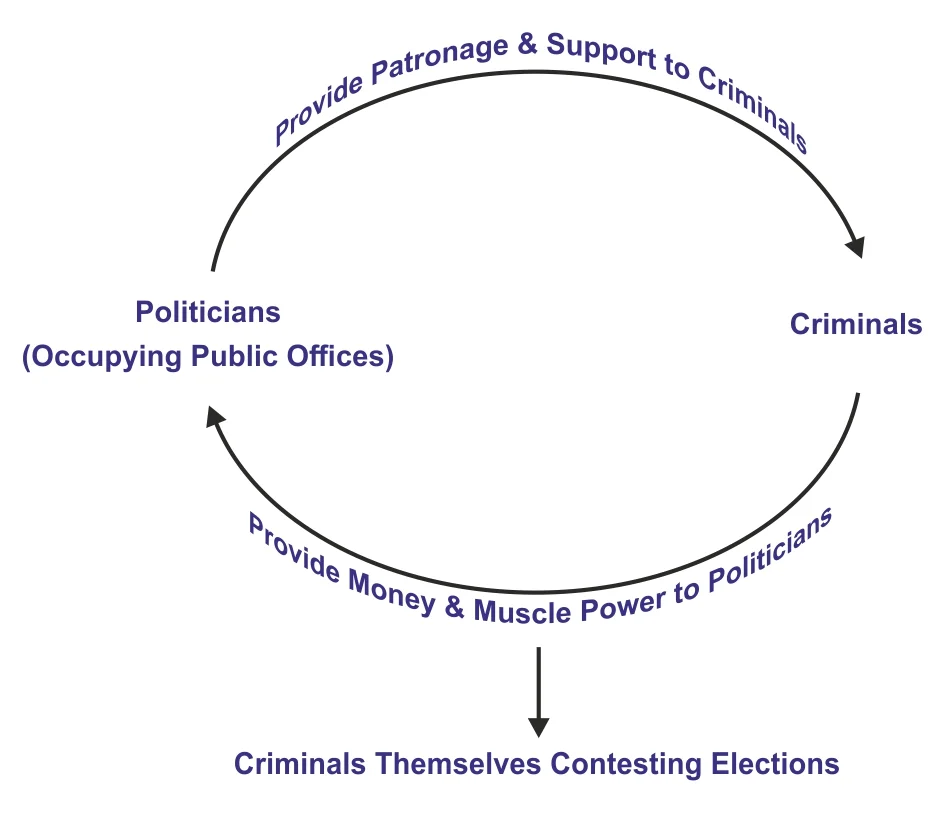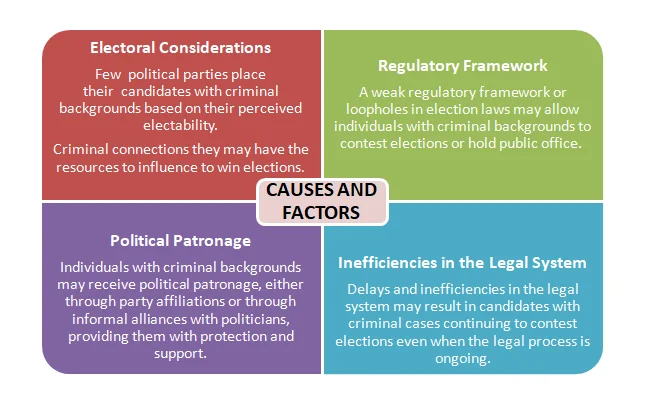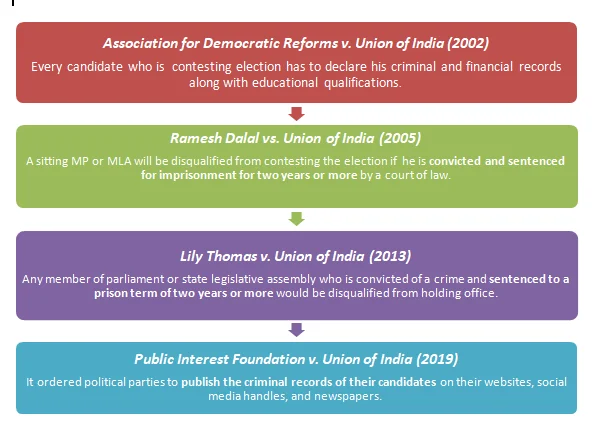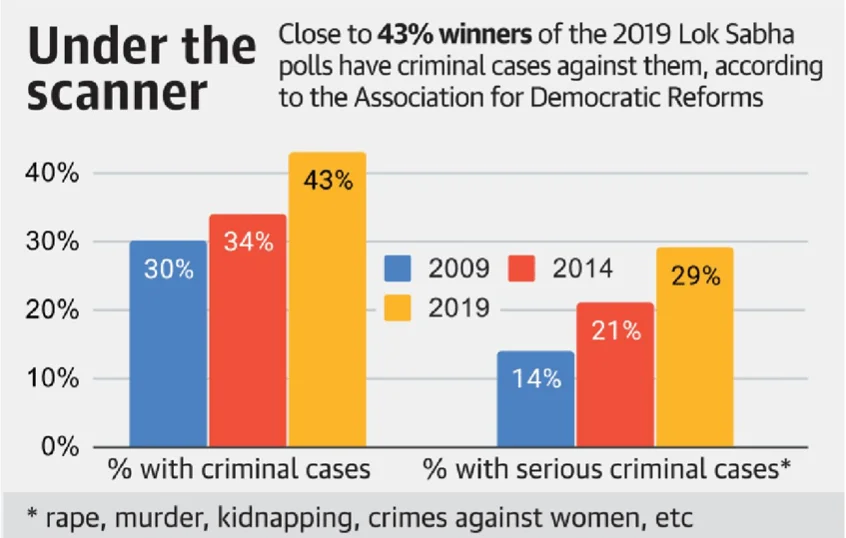Criminalisation in politics is a growing concern in India, with an increasing number of politicians having criminal backgrounds. Reports indicate that since 2004, the percentage of parliamentarians with pending criminal cases has risen significantly. This trend poses a threat to democracy, as it undermines the integrity of political institutions. Understanding the causes and implementing effective measures to address this issue is crucial for a healthier political landscape.
Enroll now for UPSC Online Course
Addressing Criminalization in Indian Politics
The Criminalization of Politics in India: A Threat to Democracy
- Meaning: Criminalisation in politics refers to the phenomenon where individuals with criminal backgrounds, including those with pending criminal charges or convictions, actively participate in politics and hold public offices.

- Enduring Phenomenon: Criminalization in politics is a persistent issue in India, undermining democratic principles.
- Rule of Money and Muscle Power: Governance has shifted from being law-based to being influenced by financial and physical power.
- Public Acceptability: The acceptance of criminal elements by both political parties and the public undermines democratic values, creating a contradiction in democracy.
- Weakening Democratic Safeguards: The three branches of government—legislature, executive, and judiciary—are losing their effectiveness, which threatens constitutional safeguards.
- Increase in Political Parties: The rise in the number of political parties reflects declining political standards rather than improvement, indicating a weakening of national spirit.
- Unfulfilled Democratic Promises: Despite gaining independence, many citizens still do not experience the benefits of democracy, leading to a divide between the privileged and the masses.
- Influence of Criminal Elements: Politics attracts individuals with criminal backgrounds who prioritize personal gain over public welfare, leading to corruption.
- Politics as a Business: The political arena has transformed into a profit-driven business instead of a platform for service and commitment to citizens’ welfare.
|
Causes and Factors of Criminalisation

Supreme Court Judgement on Criminalisation of Politics

Initiatives/Recommendations Against Criminalisation of Politics
- Vohra Committee(1983): It was constituted with an objective to identify the extent of the political-criminal nexus and to recommend ways in which the criminalisation of politics can be effectively dealt with. It suggested:
- Disqualification of Politicians with Criminal Backgrounds: All political parties should be required to provide information on the criminal background of their candidates at the time of nomination.
- Candidates with criminal records should be disqualified from contesting elections and holding public office.
- Establishment of Special Courts: To expedite the trial of cases involving politicians and organised crime. These courts should have the power to confiscate the assets of convicted criminals and use the proceeds to compensate victims.
- The 244th report (2014) of the Law Commission: It suggested the need to curb the trend of criminal politicians in the legislature posing serious consequences to democracy and secularism.
- It recommended disqualification of people against those whose charges have been framed for at least one year before the date of scrutiny of nominations for an offence punishable with a sentence of five years or more.
- Creation of Special Courts (2017): The Union government started 12 special courts for a year to fast track the trial of criminal cases against MPs and MLAs.
Measures and Reforms
| Legal Reforms |
|
| Transparency and Awareness: |
|
| Fast-Track Courts |
|
| Political Accountability: |
|
| Public Engagement |
|
| Electoral Reforms |
|
Enroll now for UPSC Online Course
| Must Read | |
| Current Affairs | Editorial Analysis |
| Upsc Notes | Upsc Blogs |
| NCERT Notes | Free Main Answer Writing |
Conclusion
Addressing the criminalisation of politics in India requires a comprehensive approach that includes legal reforms, enhanced transparency, and active public engagement.
- Initiatives such as special courts and disqualification of candidates with serious charges can help restore integrity to the political system.
- It is vital for citizens to remain informed and involved in the electoral process. Upholding democratic values and the rule of law is essential for the future of Indian democracy.
Sign up for the PWOnlyIAS Online Course by Physics Wallah and start your journey to IAS success today!

 GS Foundation
GS Foundation Optional Course
Optional Course Combo Courses
Combo Courses Degree Program
Degree Program













